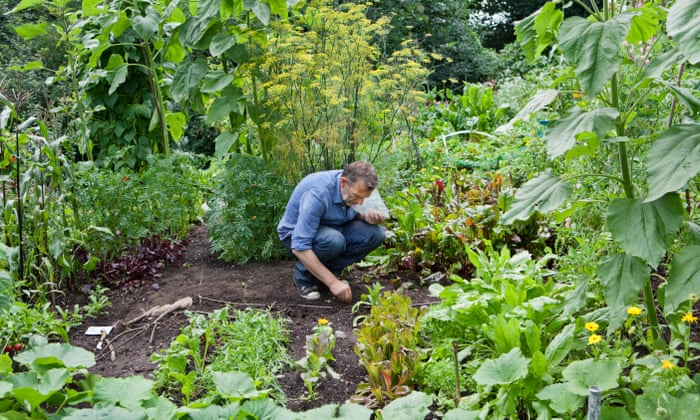As he cultivates his London allotment, the journalist also digs into his troubled past – a brilliant grafting of haunting recollections on to a gardener’s diary

“We must cultivate our garden,” was the moral of Voltaire’s 1759 satire Candide. Faced with a world full of evil, uncertainty, bad luck, corrupt politics, natural disaster and torture, the best Voltaire’s hero can do is stay at home and look after the produce of his own garden, a small plot with pistachio nuts and citrons. Out in the world, Candide’s plans go horribly wrong. It is only in his small plot that he can lead a life that is productive, responsible and serene.
Something of the same spirit animates the wonderful Plot 29 by Observer journalist Allan Jenkins, which is half memoir, half thoughtful gardener’s diary. Like Helen Macdonald’s H Is for Hawk, this is a profoundly moving account of mental trauma told through the author’s encounters with nature. Jenkins sees his garden as a place where a person can try to escape from, and atone for, the darkness of human existence. Plot 29 is the shared London allotment where for 10 years, he has been growing an array of biodynamic flowers and vegetables, from Tuscan kale to courgette blossoms. In his daily life, Jenkins lives with a sense of hurt and loss from a childhood he feels he can never put behind him. Plot 29, by contrast, presents him with more consoling and immediate problems such as pigeons, weeds and snails who “lie in wait like bullies”. He describes the sheer grind involved, often at the crack of dawn before he goes to the office: the hours spent stirring cow manure into water by hand, or carefully weaving together hazel poles for beans to clamber up. For Jenkins, this labour is not just about producing delicious vegetables. What he is growing in this city garden, along with the marigold and sorrel, is a kind of “solace”.
Read more here.


















